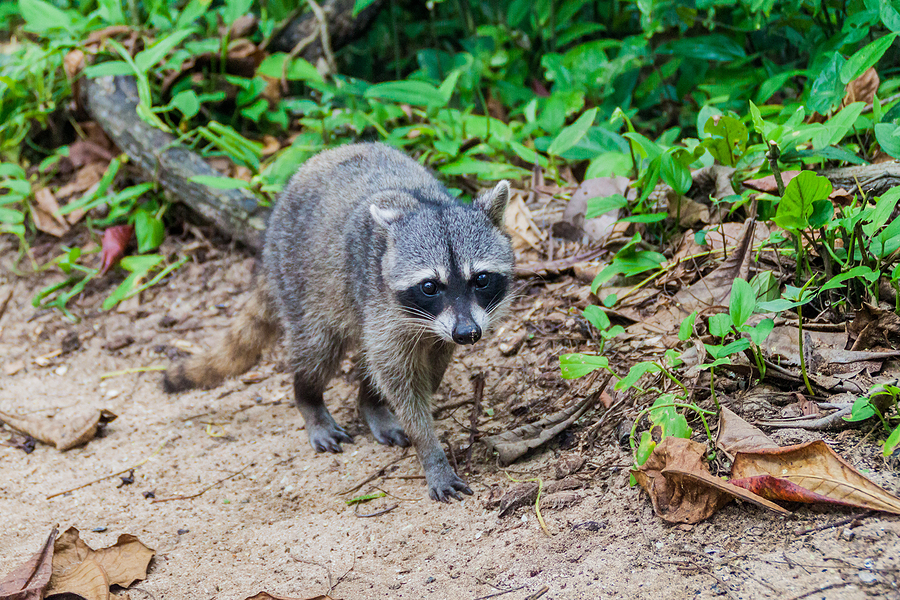Raccoons are highly intelligent, medium-sized mammals, native to North America. They are a part of the Procyonidae family, and categorized under the Procyon genus. Procyon literally translates to “doglike”; intending to denote the social and physical behaviors of the Procyon Lotor, or raccoon species. They are nocturnal animals that sleep during the day and remain active at night. Raccoons are omnivores, which means they eat everything that a human likes to eat. This includes fruits, vegetables, meats, fish, grains, oats, and more. Although they like to eat these foods, they mostly feed on small animals, insects, and wild vegetation and flora.
Get to Know Raccoons!
Raccoons are very intelligent, as mentioned before; but they are also very intuitive and have excellent memories. This is why raccoons are also known as pests in rural and city areas. They are perfect bandits when it comes to hunting down food and shelter in residential and commercial neighborhoods. They remember where all the good spots are, and how to get the food they want and so desperately need.
Raccoons use their human-like paws to pry open doors, windows, locks, and more. They can gain entry into a home or building in as little as one night. They build nests, breed, and feed their colonies in whichever shelter they find. This can cause a large amount of damage and mess. This is where a professional raccoon control company comes into play. They retain the proper equipment and training to professionally cleanup raccoon messes and provide minor attic or exterior repairs for raccoon damages.
Raccoons are generally medium-sized mammals, but can grow upwards of 40 pounds or more! It all depends on the abundance of food and food sources available to the raccoon, and the environment in which they live. Obviously domesticated raccoons weigh more than wild ones because they have a consistent food source, but wild raccoons can also get large as well. The average raccoon is around three feet tall, or long, and weights between 20 and 30 pounds. One of the largest raccoons was recorded at a weight of 60 pounds!
When it comes to the lifespan of wild raccoons, theories and evidence are inconsistent. A raccoon’s lifespan can vary greatly. It all depends on the resources, environment, and circumstances of the raccoon or its colony. Again, domesticated raccoons are likely to live longer because they have access to veterinary care, food, nutrients, and protection. Wild raccoons, on the other hand, can live long or perish young, depending on the situation. On average, wild raccoons live between 5 and 10 years; whereas, captive raccoons can live up to 20.
If you are experiencing raccoon problems on your property, please keep in mind that they are fascinating and intelligent creatures that just need food and shelter. Instead of harming or loathing them, contact a professional raccoon control company for emergency services. Choose a company that uses safe and humane methods to remove raccoons or stop a raccoon infestation problem, as well as, provide cleanup and prevention services too.
Indiana Raccoon Removal
Call Indiana Raccoon Removal at 317-535-4605 for prompt raccoon control services in Indianapolis and its surrounding counties. Our highly trained and DNR licensed wildlife removal experts have decades of experience in the raccoon control industry. We use safe and humane methods to extract raccoons and relocate them to a safe and faraway habitat. We offer raccoon cleanup, prevention, emergency services, and much more. Call 317-535-4605 and request a free estimate for Indianapolis raccoon removal and control, today.

